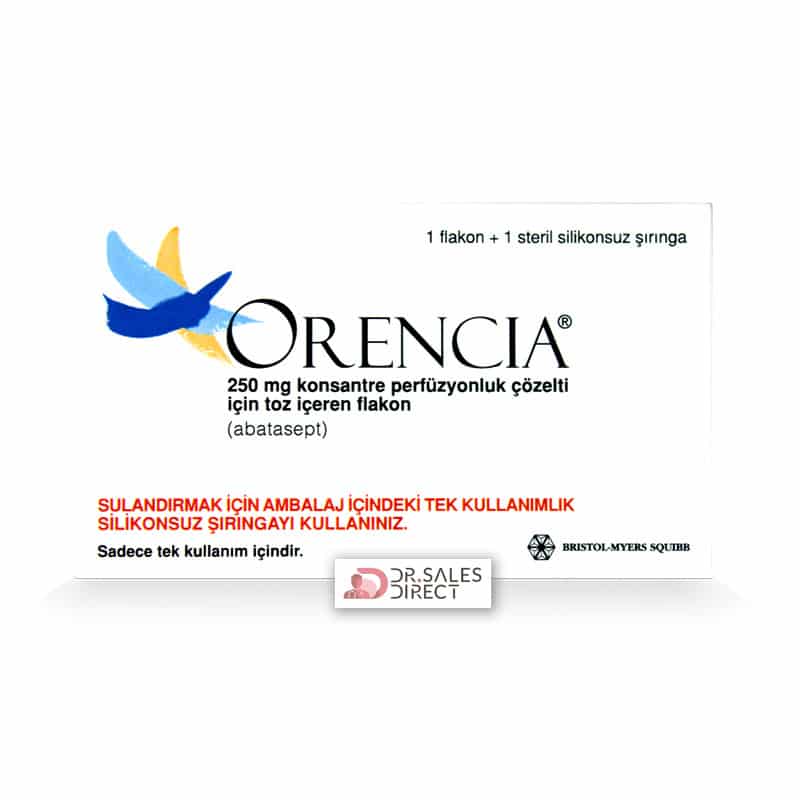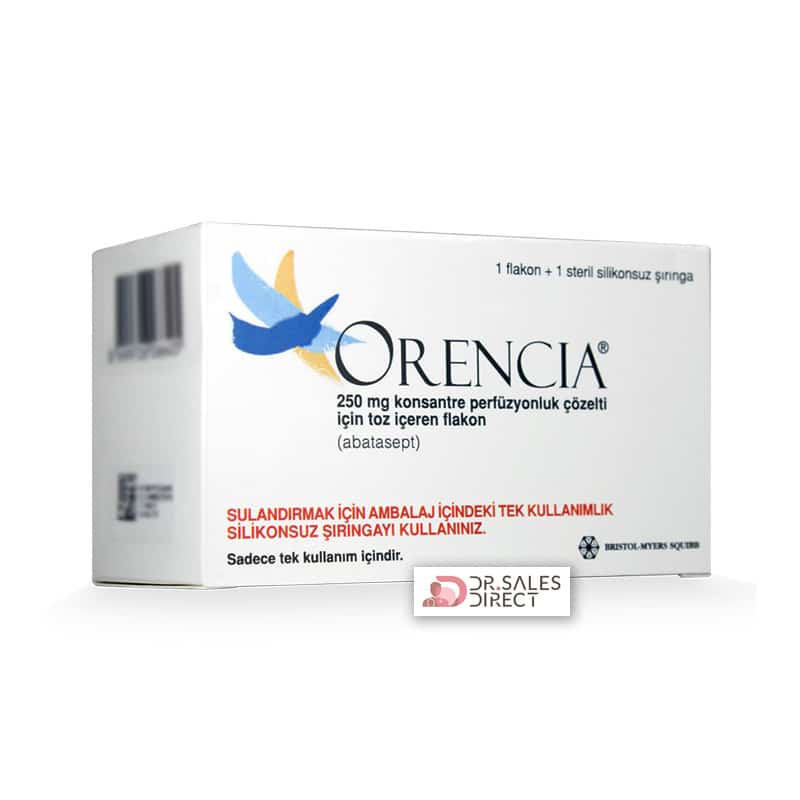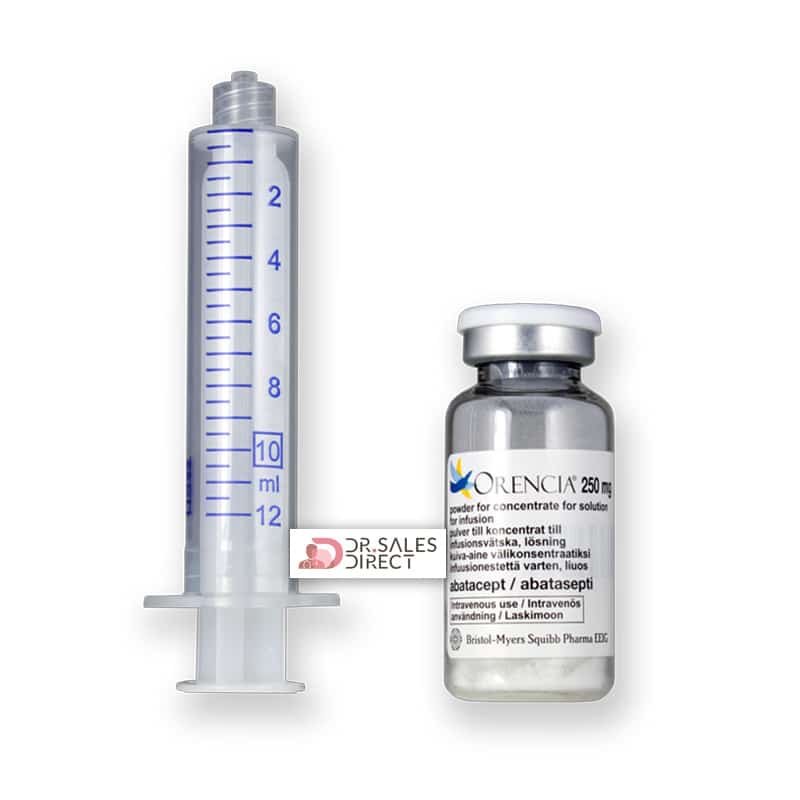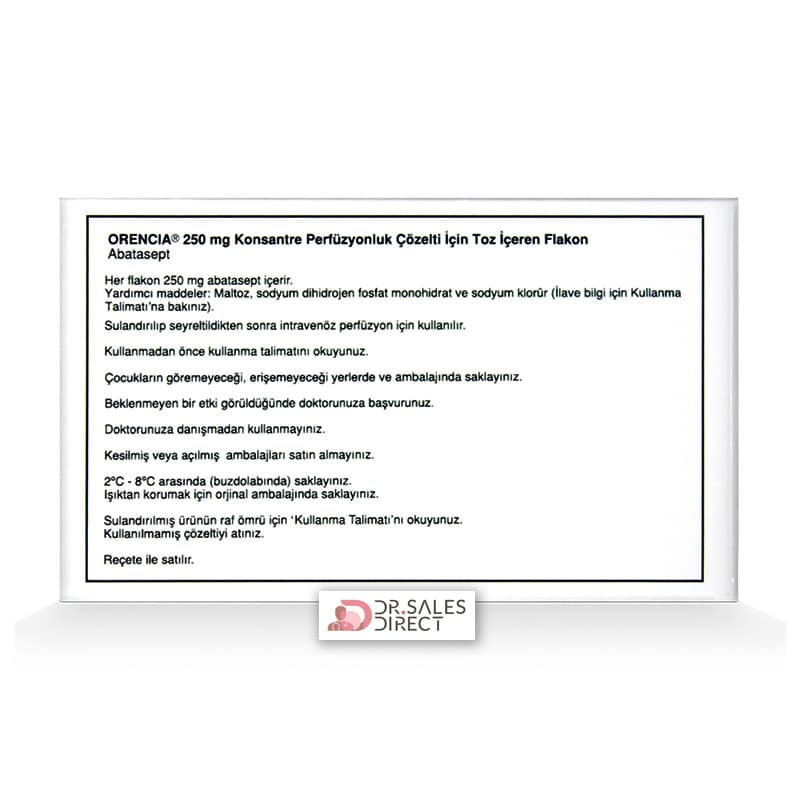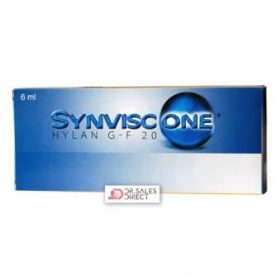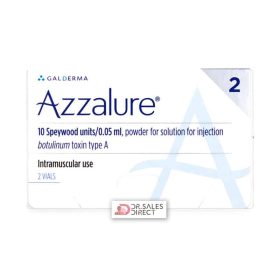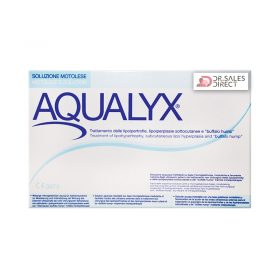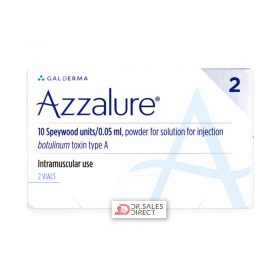Additional information
ORENCIA is a targeted therapy designed to manage rheumatoid arthritis (RA) by inhibiting specific immune system pathways that contribute to inflammation. It is a fusion protein that interferes with the activation of T-cells, which play a key role in the autoimmune response. Available as both intravenous and subcutaneous formulations, ORENCIA is used to help control symptoms and improve the quality of life for patients with RA who have not responded adequately to other treatments.
This medicine is for adults and children at least 2 years old.
Orencia is not a cure for any autoimmune disorder and will only treat the symptoms of your condition.
Main Treatment Areas
ORENCIA is primarily indicated for the treatment of rheumatoid arthritis (RA) in adults, including those with moderate to severe disease who have had an inadequate response to other disease-modifying antirheumatic drugs (DMARDs). It is also used for juvenile idiopathic arthritis (JIA) in children aged 2 years and older. By targeting the T-cell activation process, ORENCIA helps reduce joint inflammation, pain, and damage associated with RA.
Key Benefits
ORENCIA helps reduce RA symptoms, improves physical function, and can slow joint damage progression. However, while some patients experience significant improvement or long-term disease control, achieving full remission is variable. The term “long-term remission” is ambitious, as RA treatment outcomes vary widely among patients.
Safety Information
ORENCIA is generally well-tolerated, but it may cause side effects such as infections, headache, nausea, and infusion reactions. Patients should be monitored for signs of serious infections, including tuberculosis, as ORENCIA can increase the risk of infections and should be used with caution in those with a history of chronic infections or who are immunocompromised. Infusion reactions may include fever, rash, and difficulty breathing, necessitating close monitoring during and after administration.
It is important to ensure all vaccinations are up to date before starting treatment, as live vaccines should be avoided. Regular liver function tests are recommended due to potential effects on liver enzymes. Additionally, the safety of ORENCIA® during pregnancy and breastfeeding has not been established, so patients who are pregnant, planning to become pregnant, or breastfeeding should consult their healthcare provider to weigh the risks and benefits.
Order ORENCIA Online
For wholesale pricing and to purchase ORENCIA through a trusted wholesale supplier, please visit our product page. Pricing details are available upon request, and users need to sign in for specific pricing information. Our wholesale prices offer significant savings on bulk orders, ensuring that you receive the best value for your purchase.
Frequently Asked Questions
ORENCIA® (abatacept) and ACTEMRA® (tocilizumab) are biologic therapies used to manage rheumatoid arthritis (RA), each working through unique mechanisms suited to different patient needs. ORENCIA functions as a selective T-cell costimulation modulator, preventing T-cell activation by blocking the interaction between antigen-presenting cells and T-cells, thereby reducing the autoimmune response that drives RA inflammation. In contrast, ACTEMRA is an interleukin-6 (IL-6) receptor antagonist, directly inhibiting IL-6—a cytokine responsible for promoting inflammation—offering a more rapid anti-inflammatory effect that is especially beneficial for patients with high disease activity.
ORENCIA is approved for moderate to severe RA in adults and juvenile idiopathic arthritis (JIA) in children, while ACTEMRA has broader indications, including giant cell arteritis (GCA) and cytokine release syndrome (CRS) associated with CAR T-cell therapy, in addition to RA. Both treatments are available in intravenous and subcutaneous forms, providing flexibility in administration; however, ACTEMRA allows for more frequent dosing options based on patient needs. In terms of safety, ORENCIA is generally well-tolerated but requires vigilance for respiratory infections and the consideration of live vaccinations prior to use.
ACTEMRA, while effective in reducing inflammation quickly, has a risk profile that includes elevated liver enzymes, increased cholesterol levels, and a risk of gastrointestinal perforation, necessitating regular monitoring of liver function and lipid levels. Ultimately, ORENCIA’s T-cell modulation approach is well-suited for patients who may benefit from focused immune modulation, while ACTEMRA’s IL-6 inhibition offers a rapid and broad anti-inflammatory response for those with high inflammatory symptoms or additional conditions. The choice between these therapies should be guided by the patient’s specific medical history, treatment response, and tolerance to previous treatments.

